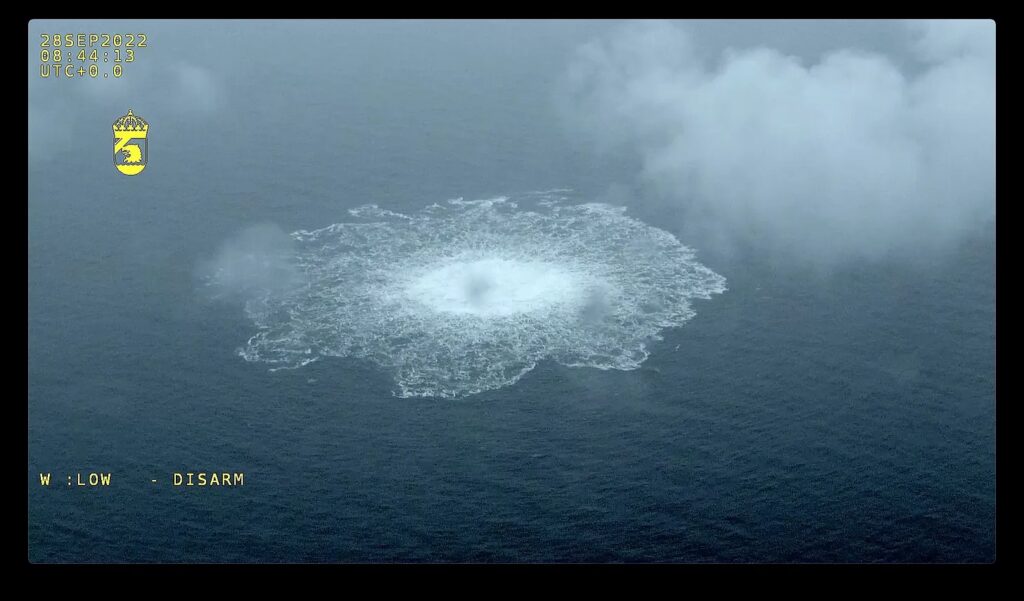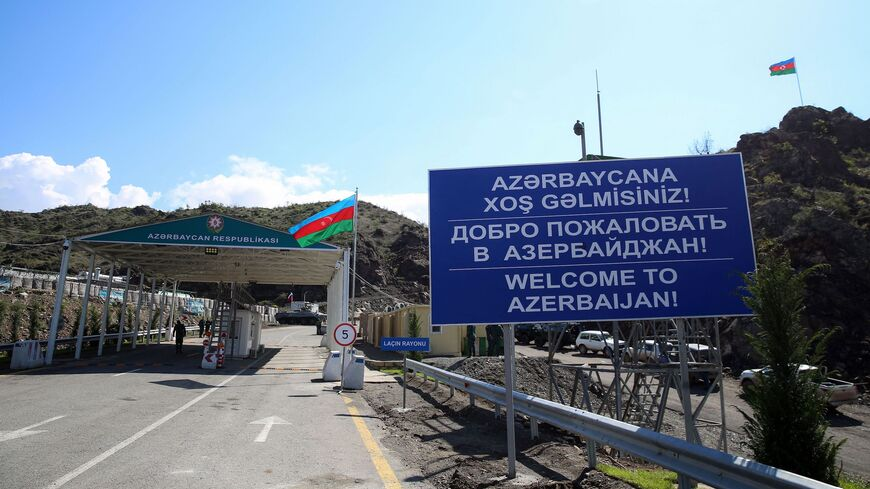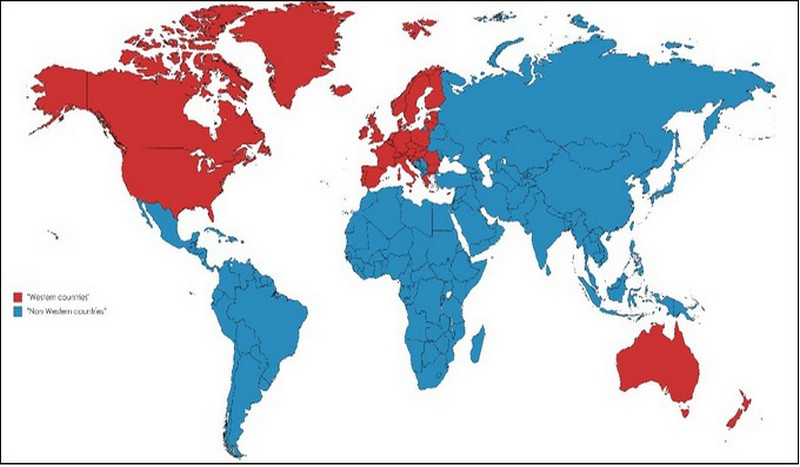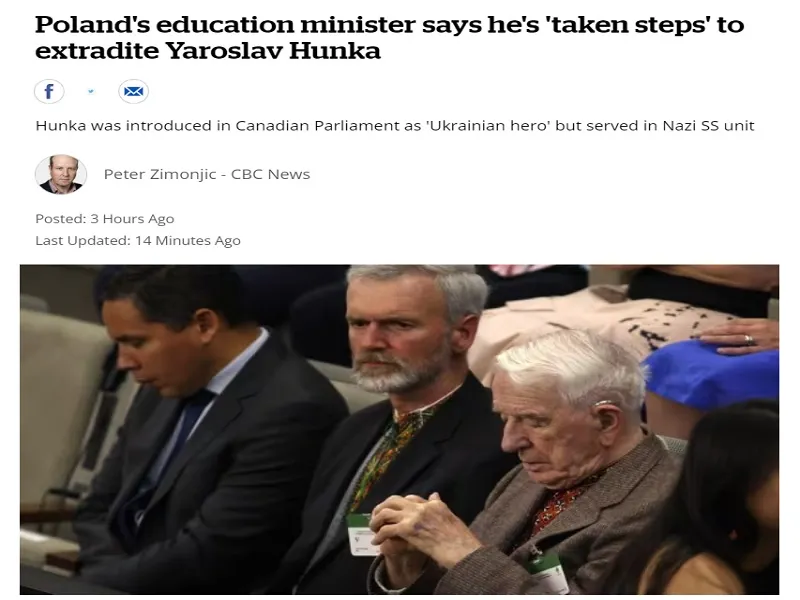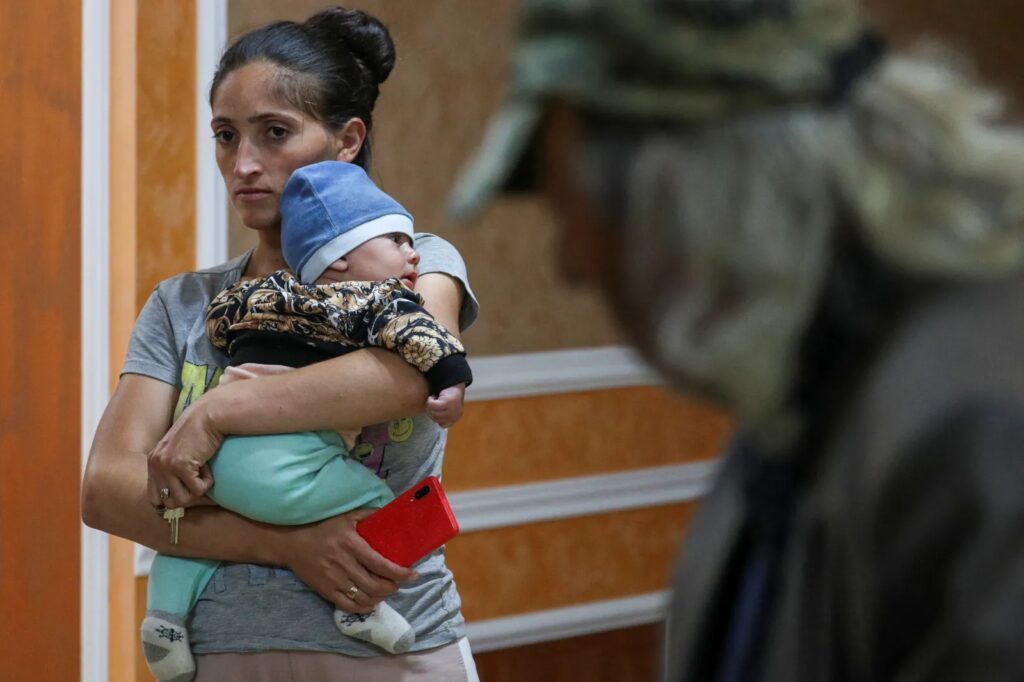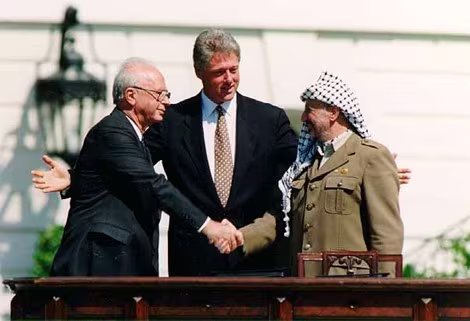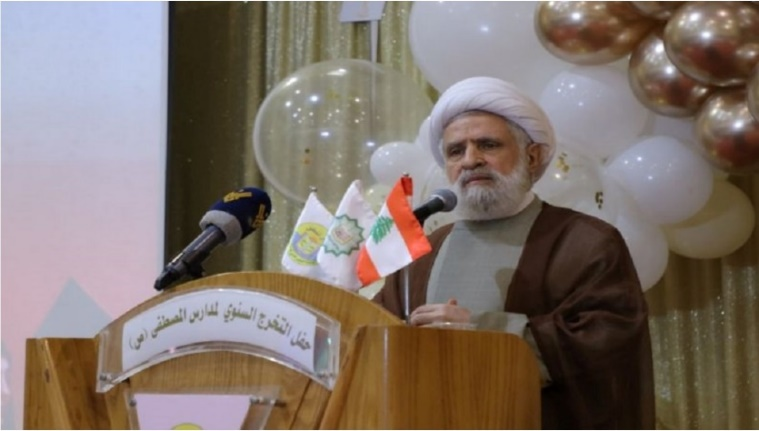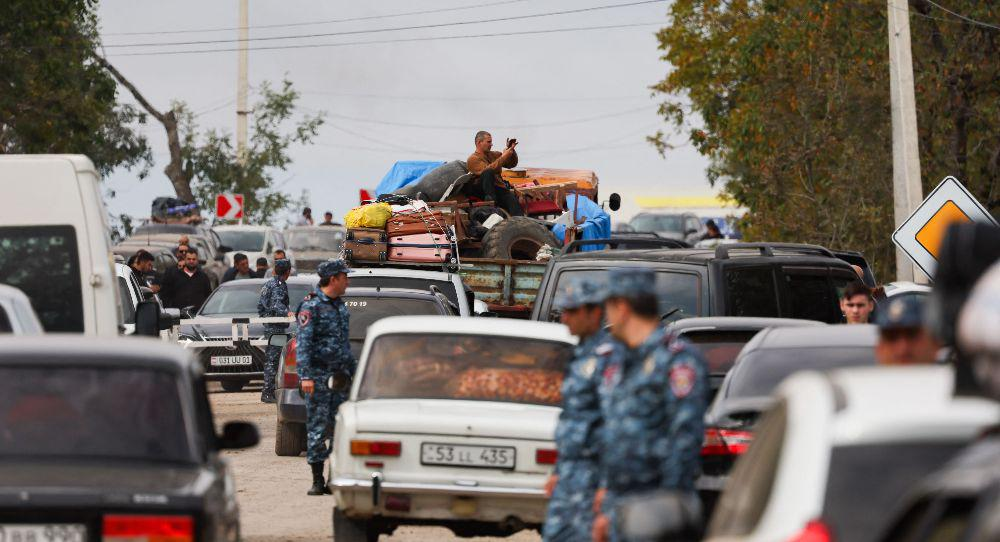
The Russian invasion of Ukraine on February 24, 2022 has been justified by Russian President Vladimir Putin as a “special military operation” with a few barbed purposes, among them cleaning the country’s stables of Nazis. As with so many instances of history, it was not entirely untrue, though particularly convenient for Moscow. At the core of many a nationalist movement beats a reactionary heart, and the trauma-strewn stretch that is Ukrainian history is no exception.
A central figure in this drama remains Stepan Bandera, whose influence during the Second World War have etched him into the annals of Ukrainian history. His appearance in the Russian rationale for invading Ukraine has given his spirit a historical exit clause, something akin to rehabilitation. This has been helped by the scant coverage, and knowledge of the man outside the feverish nationalist imaginings that continue to sustain him.
Since his 1959 assassination, the subject of Bandera as one of the foremost Ukrainian nationalists has lacked any lengthy treatment. Then came Grzegorz Rossoliński-Liebe’s door stop of a work in 2014, which charted the links between Bandera’s nationalist thought, various racially-minded sources such as Mykola Mikhnovs’kyi, who dreamed of a Ukraine cleansed of Russians, Poles, Magyars, Romanians and Jews, and the role of the Organisation of Ukrainian Nationalists (OUN), which was founded in Vienna in 1929 by Yevhen Konovalets and Andriy Melnyk.
Notwithstanding the cosmopolitan, multi-ethnic composition of the territories that would become modern Ukraine, the OUN specialised in the babble of homogenous identity and purity. A hatred of Jews was more than casual: it was integral. They were, to quote the waspish words of Yuri Lylianych in Rozbudova Natsii (Rebuilding the Nation), the official OUN journal, “an alien and many of them even a hostile element of the Ukrainian national organism.”
For his part, Bandera, son of a nationalist Greek Catholic priest, was a zealot, self-tormentor and flagellator. As head of the Ukrainian Nationalists, Bandera got busy, blooding himself with such terrorist attacks as the 1934 assassination of the Polish Minister of the Interior Bronisław Pieracki. He was fortunate that his death sentence was commuted to life imprisonment, not that it stopped him from bellowing “Slava Ukrayiny!”
Followers of Bandera came to be known as the Banderowzi. During the second week after the invasion of the Soviet Union in 1941, the Benderowzi, flushed with confidence, declared a Ukrainian state in Lemberg. The occasion was celebrated a few days with a pogrom against Jews in the city. It remains unclear, however, where the orders came from. With the Germans finding Bandera’s followers a nuisance and ill-fitting to their program, they were reduced in importance to the level of police units and sent to Belarus. On being transferred to Volhynia in Ukraine, many melted into the forests to form the future UPA (Ukrainian Insurgent Army).
For its part, the OUN, aided by the good services of the Ukrainian citizenry, assisted the Third Reich slaughter 800,000 Jews in western Ukraine. The UPA, as historian Jaroslav Hryzak writes, proceeded to fight all and sundry, be they units of the German Army, red partisans, the Polish underground army, and other Ukrainian nationalists. Volhynia and Galicia were sites of frightful slaughter by the UPA, with the number of murdered Poles running upwards of 100,000. One target remained enduring – at least for five years. From 1944 to 1949, remnants of the UPA and OUN were fixated with the Soviets while continuing a campaign of terror against eastern Ukrainians transferred to Volhynia and Galicia as administrators or teachers, along with alleged informers and collaborators.
Oddly enough, Bandera as a historically active figure played less of a direct role in the war as is sometimes thought, leaving the Banderowzi to work their violence in the shadow of his myth and influence. From the Polish prison he was kept in, he escaped after the German invasion of Poland in September 1939. In the summer of 1941, he anticipated a more direct role in the conflict as future Prowidnyk (leader) but was arrested by the Germans following the Lviv proclamation of a Ukrainian state On June 30, 1941.
Prior to his arrest, however, he had drafted, with the aid of such deputies as Stepan Shukhevych, Stepan Lenkavs’kyi and Iaroslva Stes’ko, an internal party document ominously entitled, “The Struggle and Activities of the OUN in Wartime.” In it, purification is cherished, one that will scrub Ukrainian territory of “Muscovites, Poles, and Jews” with a special focus on those protecting the Soviet regime.
Following his arrest, Bandera spent time in Berlin. From there, he had a stint as a political prisoner of the Reich Main Security Office (RSHA) in Sachsenhausen concentration camp. His time in detention did little to quell the zeal of his followers, who went along their merry way butchering in the name of their cult leader. After the war, he settled in Munich with his family, but was eventually identified by a KGB agent and murdered in 1959.
Bandera offers a slice of historical loathing and reverence for a good number of parties: as a figure of the Holocaust, an opportunistic collaborator, a freedom fighter. Even within Ukraine, the split between the reverential West and the loathing East remained. In January 2010, Ukrainian President Viktor Yushchenko declared Bandera a Hero of Ukraine.
In 2020, Poland and Israel jointly rebuked the city government of Kyiv via its ambassadors for sporting banners connected with the nationalist figure. Bandera’s portrait made an appearance on a municipal building at the conclusion of a January 1 march honouring the man’s 111th birthday, with hundreds of individuals in attendance.
In their letter to the city state administration, ambassadors Bartosz Cichocki and Joel Lion of Poland and Israel respectively expressed their “great concern and sorrow… that Ukraine’s authorities of different levels: Lviv Oblast Council and the Kyiv City State Administration continue to cherish people and historical events, which has to be once and forever condemned.”
The ambassadors also expressed concern to the Lviv Oblast for tolerating its celebration of a number of other figures: Andriy Melnyk, another Third Reich collaborator whose blood lust was less keen than that of Bandera’s followers; Ivan Lypa, “the Anti-Semite, Antipole and xenophobe writer,” along with his son, Yurii Lypa, “who wrote the racist theory of the Ukrainian Race.”
The stubborn Bandera itch can manifest at any given moment. In July 2022, the Ukrainian ambassador to Germany, as it so happens another Andriy Melnyk, misjudged the mood by airing his views about Bandera. He insisted that the nationalist figure had been needlessly libelled; he “was not a mass murderer of Jews and Poles” and nor was there evidence to suggest otherwise. The same Melnyk had also accused the German Chancellor Olaf Scholz of being a “beleidigte Leberwurst” (offended liver sausage), a delightful term reserved for the thin-skinned.
As ambassadors are usually expected to be vessels of government opinion, such conduct should have been revealing enough, though Ukrainian President Volodymyr Zelenskyy’s decision to remove Melnyk from his Berlin post was put down to “a normal part of diplomatic practice.” A likelier explanation lies in the furore the pro-Bandera remarks caused in the Israeli Embassy (“a distortion of the historical facts,” raged the official channel, not to mention belittling “the Holocaust and is an insult to those who were murdered by Bandera and his people) and Poland (“such an opinion and such words are absolutely unacceptable,” snapped the country’s Deputy Foreign Minister Marcin Przydacz).
Despite his removal from the post, messages of regret and condolences flowed from a number of his German hosts, suggesting that the butcher-adoration-complex should be no barrier to respect in times of conflict. “The fact that he did not always strike the diplomatic tone here is more than understandable in view of the incomprehensible war crimes and the suffering of the Ukrainian people,” reasoned the foreign policy spokesman of the Christian Democratic Union/Christian Social Union (CDU/CSU) parliamentary group, Roderich Kiesewetter. Bandera would surely have approved the sentiment.
